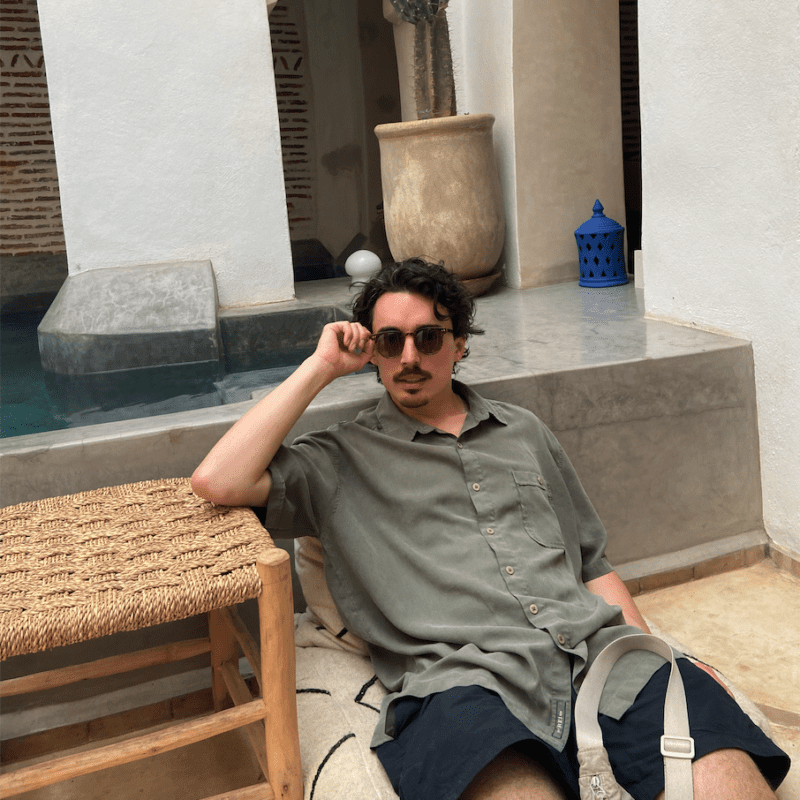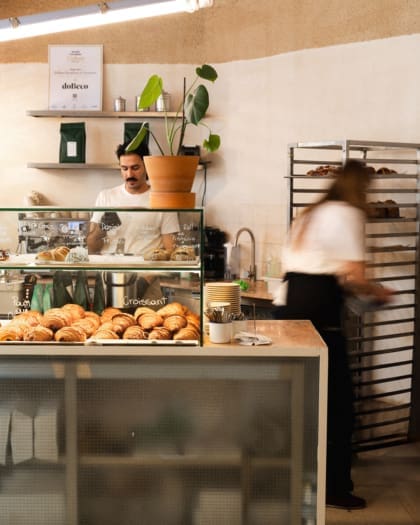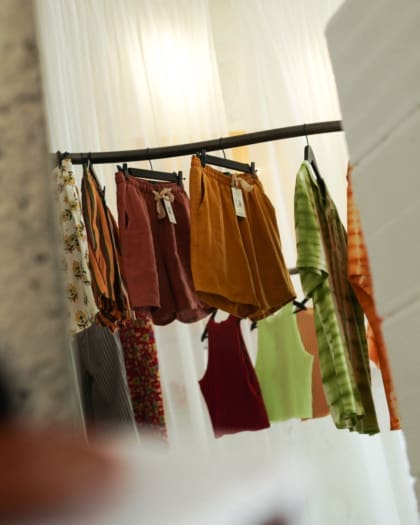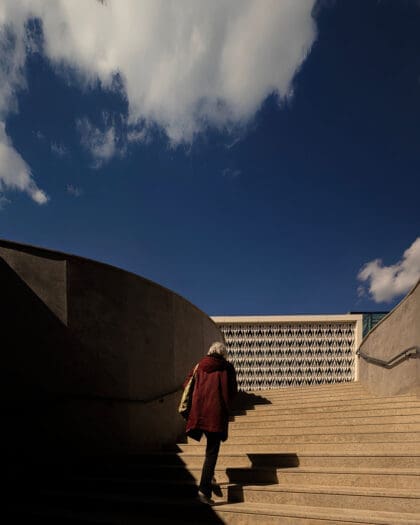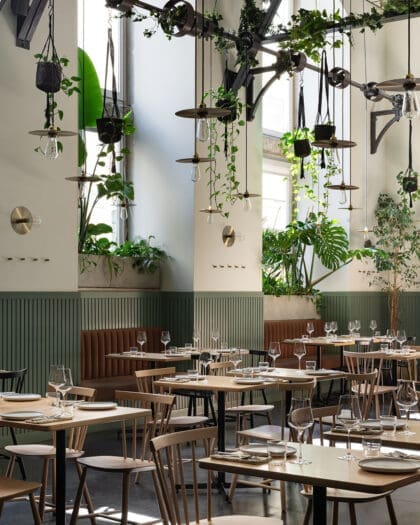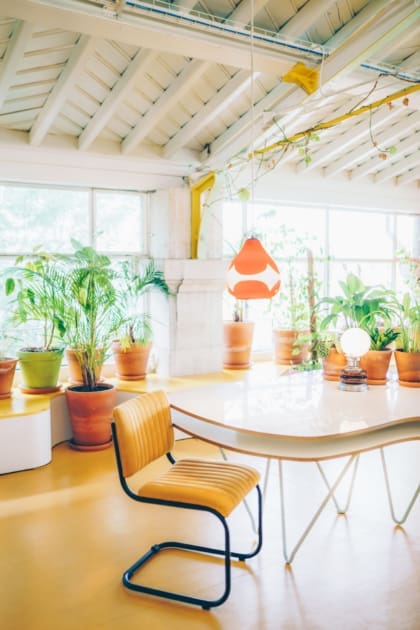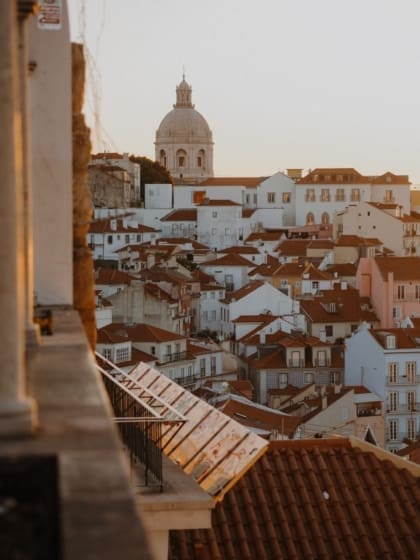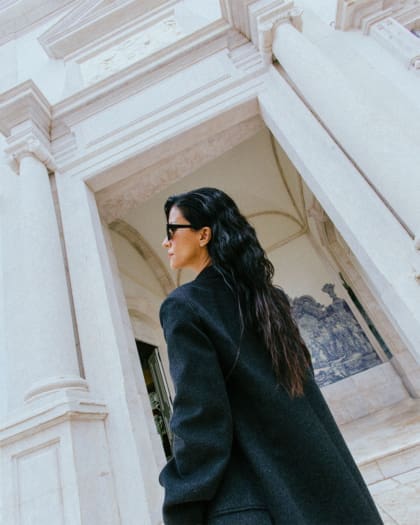
Portuguese singer Ana Moura on ‘novo fado’, motherhood and Lisbon’s club scene
Fadista Ana Moura pushes ‘Portuguese blues’ into new territory, fusing the melancholic sound with semba and kizomba as inspired by her Angolan heritage and Lisbon’s club scene
Ana Moura is one of Portugal’s leading fado singers – the genre of music that’s been described as Portugal’s blues, a traditional 19th-century melancholic style sung by the sailors, workers and prostitutes of Barrio Alto and Alfama in Lisbon, and centred on subjects of loss and heartache. Moura has honoured and pushed the tradition of fado forward for much of her career, releasing seven studio albums across two decades, and is one of Portugal’s biggest artists: she has sold millions of records worldwide, has collaborated with Prince, and performed with The Rolling Stones.
Her most recent music, including her 2022 album Casa Guilhermina, and her new single Desliza, released in September 2024, sees Moura blend fado with Angolan rhythms such as the traditional semba and 1980s electronic-driven kizomba, contributing to Lisbon’s developing novo fado club scene.
From her home studio in Cascais, the coastal town just outside Lisbon, Moura discusses how her Portuguese and Angolan heritage informs her music, her collaborations with Portuguese producers, and how navigating motherhood and artistry has formed a new appreciation of herself as a woman.
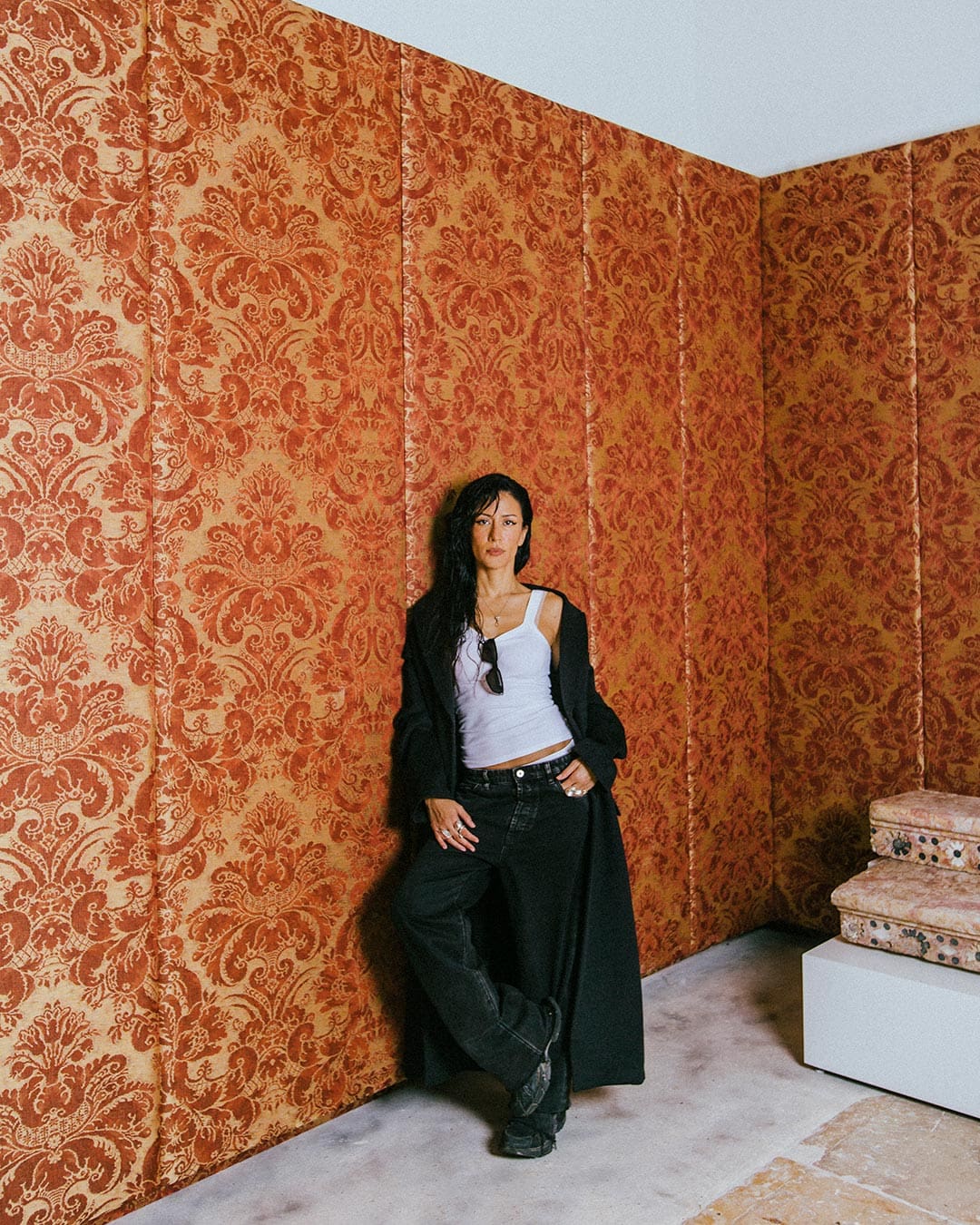
What first drew you to fado music?
I’ve known fado since I was very young. My parents both love music. My father was in a band – he sung and played drums and guitar. They spent their weekends with friends, playing and singing together. I remember hearing my father sing a very emotional song when I was very young, and I fell in love with the sound.
They say the first time I sang fado was when I was six years old. I asked if I could sing during one of those parties, and everyone stopped to listen.
My mother is from Angola, so we grew up listening and dancing to Angolan music as well. I’d always sing semba and kizomba. Lately, I have been experimenting with blending fado with these Angolan rhythms.
How do Lisbon’s connections with Africa inform its modern-day music scene?
My father went to Angola when he was 11 years old, and my mother was born there. During the time of the revolution, they came to Portugal. There are a lot of young people in Lisbon that have a similar story – producers and DJs that live in the suburbs that have created this new sound of Lisbon, blending traditional fado with African rhythms.
There are some amazing parties in Lisbon now, especially by Dengo Club. They are a black, queer collective that plays this kind of music and makes a safe space for everyone at the venues they host in.
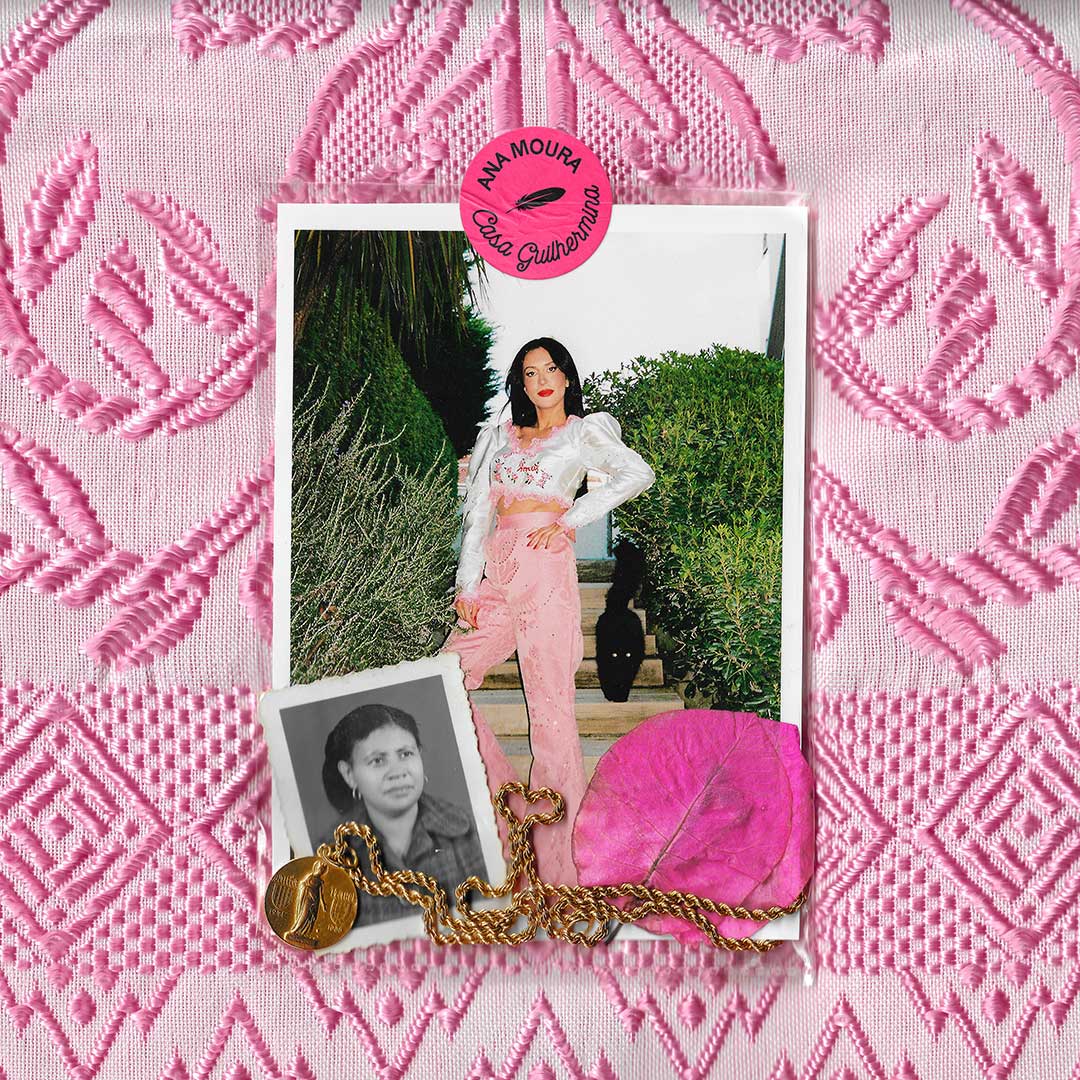
You’ve had some great collaborations throughout your career. What has been your highlight?
I loved working with Prince of course – that was an amazing opportunity. Lately I’ve been collaborating with Lisbon producer Vanyfox, who also comes from an Angolan family. The way he works was very surprising to me – he is so free in the way he writes. He’s not thinking about the verse or the refrain, he is just free to write and produce the song from his heart. We’ve made two songs that are not released yet, and I loved trying to be as free as possible.
I think of myself as a fado singer, but all of us are not only one thing. I love to find other ways of expressing what I have inside of me, and other ways I can use my voice as an instrument. To be in that position where everything is possible is really inspiring.
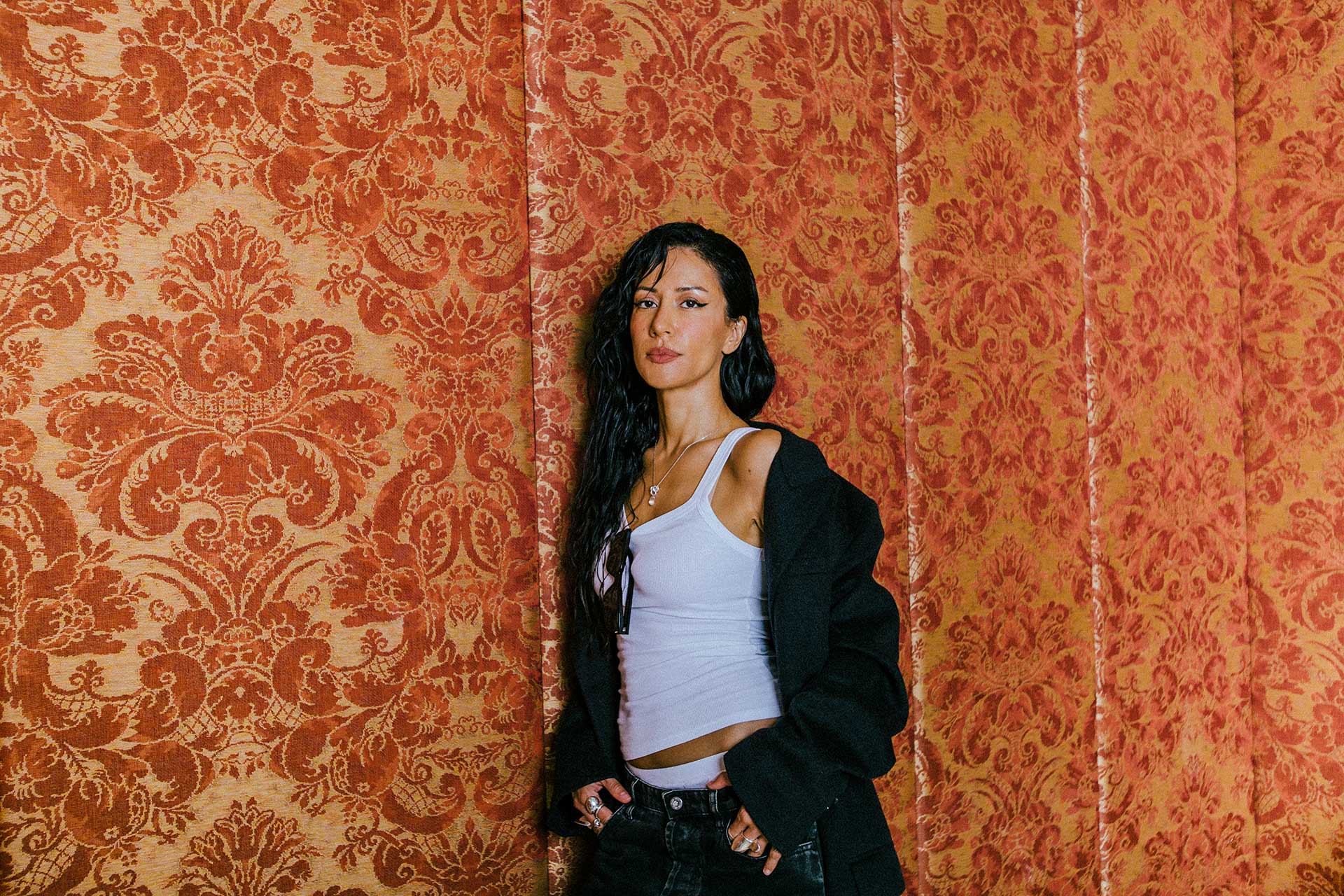
How has motherhood changed the way you think about music?
I became a mother two years ago, and I discovered the experience of being a mum and an artist at the same time – wanting to create with this little human being that needs my attention all the time. I wanted to find women I could relate with in a positive way, because women often complain about the difficulty of their lives with a child. It is difficult, but at the same time it is the most beautiful experience. It made me look at myself as a woman in a completely different perspective – as a sensual woman even. I never thought I would feel that way as a mother; I thought I would lose some sexuality or some part of being a woman when I became a mother.
I loved the process of being pregnant. Being a mother allows me a new way of seeing myself, of looking at my own body and recognising its beauty. I fell in love with the work of North American writer Audre Lorde – she was an activist, a lesbian and a mother. I found an essay of hers that really resonated with me, where she talks about the erotic, and her perspective of the erotic. She says people confuse the erotic with the pornographic, but in fact they are the opposite of one another. The erotic brings transcendence – it is all about feelings and emotions and feeling good with yourself.
I wrote about that in my new single, Desliza. I bring a more sensual vibe with the lyrics, tied into the very sensual rhythms of the kizomba. I also did a video with women dancing and moving their bodies to bring that essence of the erotic.
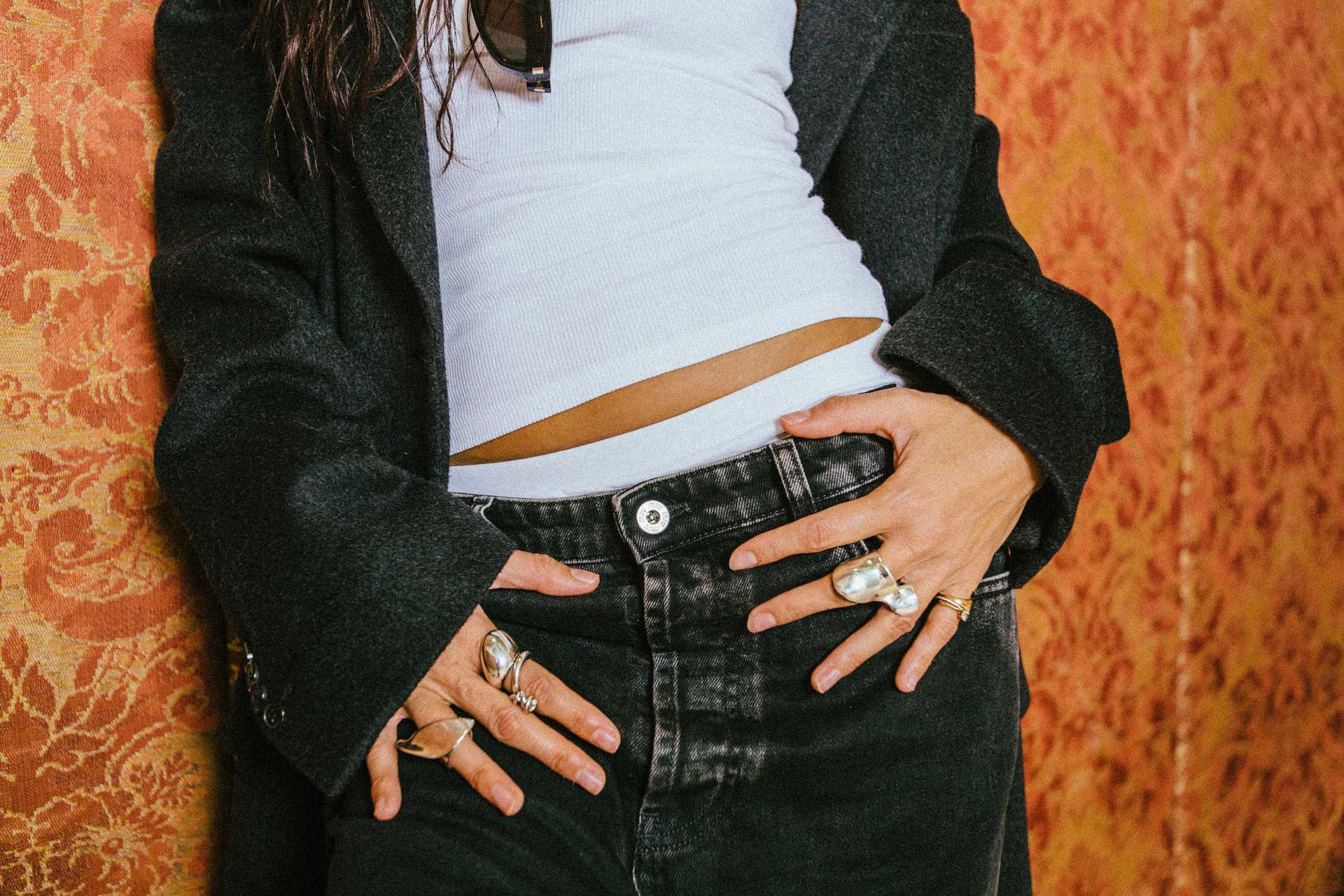
How has the reception been for your new single, Desliza?
There was a little bit of shock in Portugal, honestly. I’m known in Portugal as a traditional fado singer, and in this song I go a little bit further into these kizomba rhythms. The lyrics are also more direct. It’s been a week and a half since it was released and it has already been a bit controversial. in Portugal. The country is quite conservative. As a fado singer, I am seen as a kind of representative of Portuguese culture, and now I’m doing this different style.
What do you hope people feel when they hear your new music?
I hope they feel they are free to live their uniqueness. That is what I have been looking for, to feel free with sharing what I am inside, even if not everyone understands. That’s difficult, and particularly as an artist, because this is your way of living – you are always afraid of doing something that people will cancel you for and stop coming to your concerts.
I went to an awards ceremony a couple of days after releasing the new song, and I wore an Ann Demeulemeester archive dress from 2002, which was transparent. I went with my…my [gestures to chest] boobs. And the country went mad. I thought that dress was the best way to tell the story of my new song. And I wanted to be free to wear the dress – I really believe in it, it really matches with my music – but at the same time, I was scared. Three days after the award ceremony, I was due to play a big concert hall, and I was scared my fans would be offended and it would be empty.
I think everyone lives like this in their lives, not just artists. I always want to take one step forward for people’s freedom. That is what I’d love people to take away from listening to my music. I hope it gives them strength.
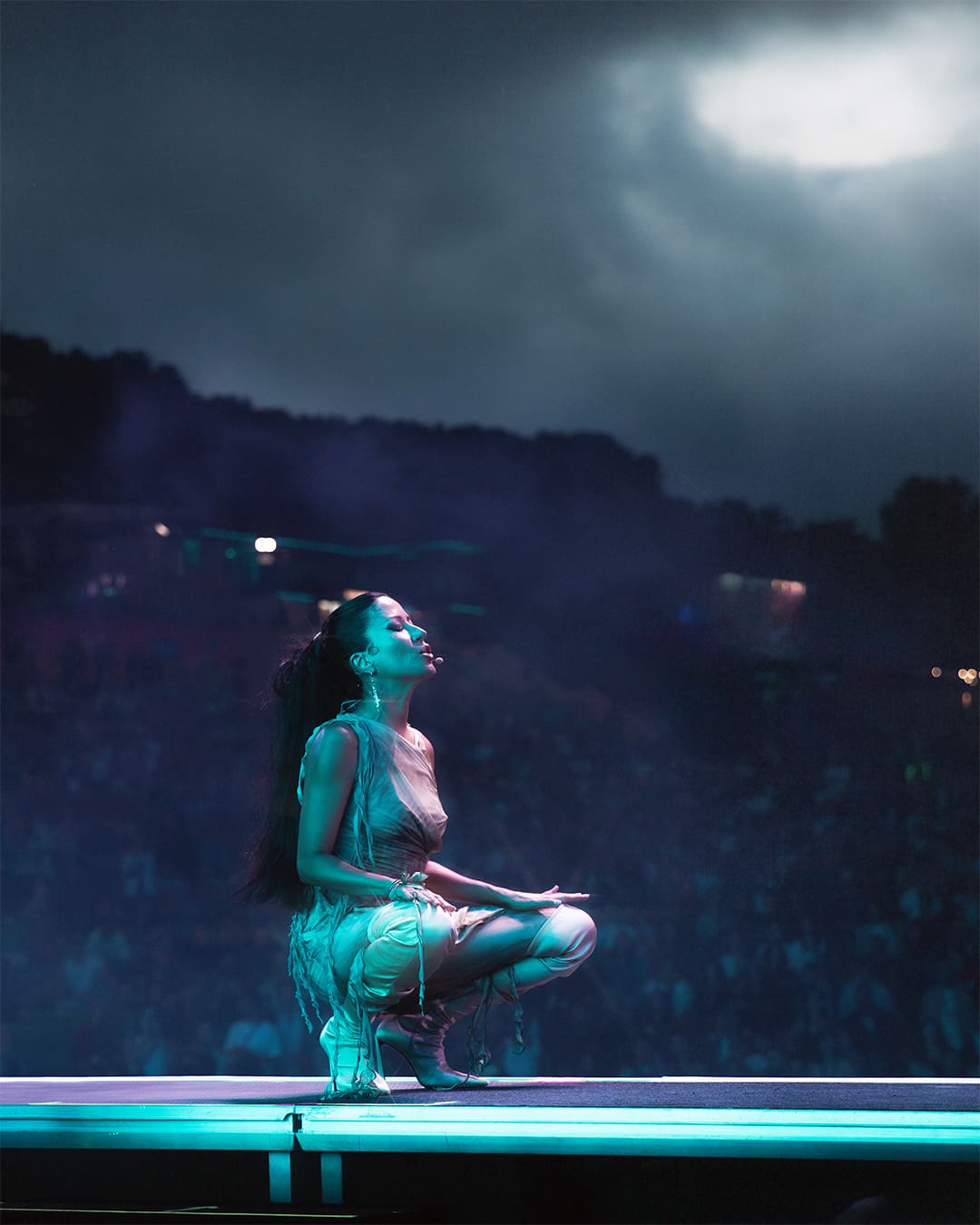
What do you like about living in Cascais?
Cascais is where the river meets the sea – I love how peaceful it is. There are lovely narrow streets with bougainvillaea of every colour. And in 25 minutes I can be in Lisbon experiencing the city.
What are your favourite things to do in Lisbon?
I love going to restaurants, wandering through the streets to feel the energy, and checking out traditional fado houses. I love going down to the river too. There are some little clubs there where I like to be with my friends – there is a beautiful view of the 25 de Abril bridge at night, illuminated by little lights, with the moon reflected in the water.
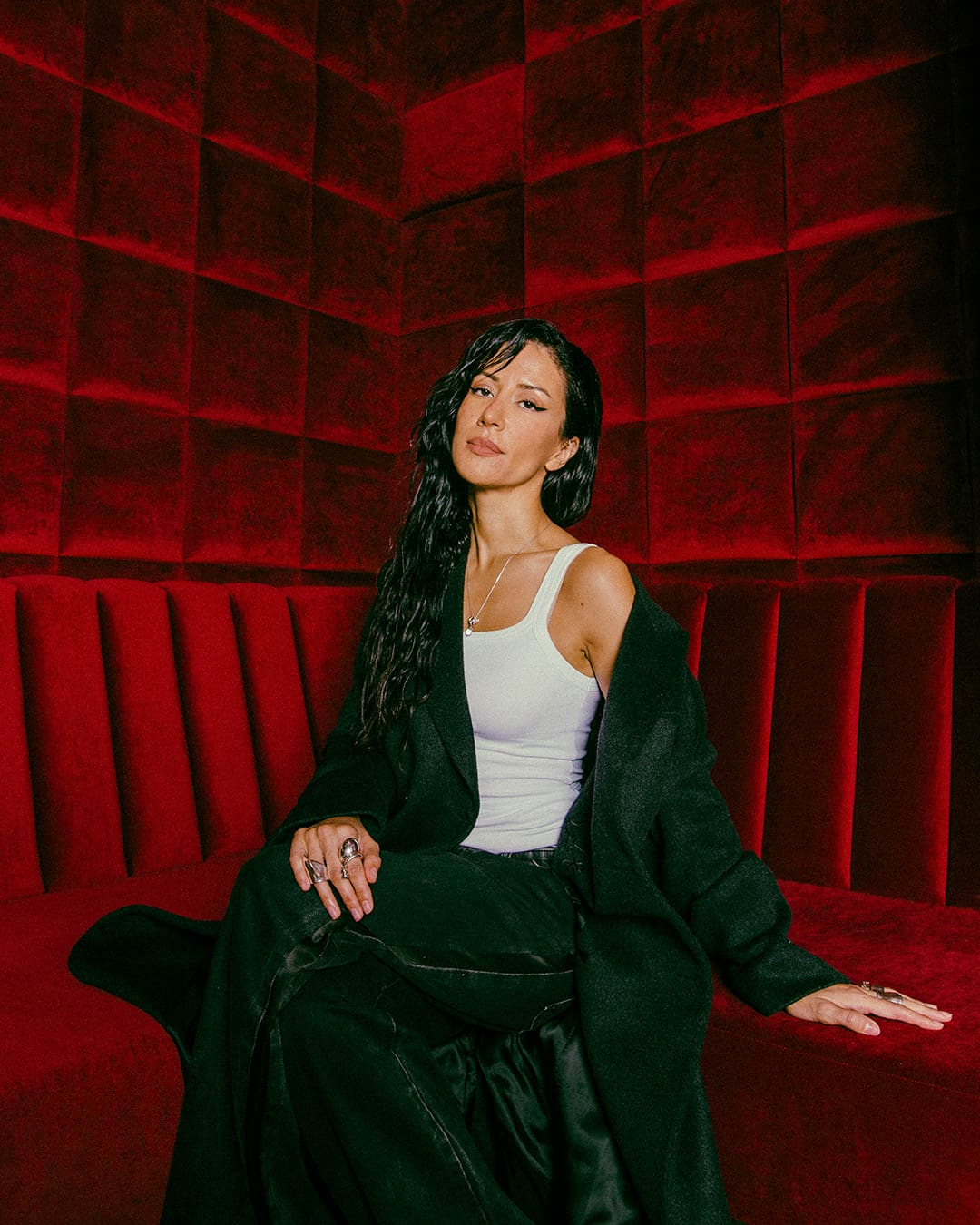
Are there other places around the world that really inspire you?
I really love Mexico. I’m craving to go back. I have done a few tours there and visited some of the cities. I love the culture, the people, the colours, the food – especially the breakfasts. I am skinny, but I eat a lot (laughs).
Where would you love to go back to?
I would love to go back to Japan. I’ve only been there once and I fell in love. I was on tour so I would love to go back without working. I’m going to Osaka next year, and I’m planning to stay to really explore.
You must see so many amazing places on tour but only for a brief time.
Yes, sometimes I can only experience the place through its food. You have the concert, then you meet people and sign autographs, then you go to the restaurant to eat something, then you sleep and rest your vocal chords, then you travel to the next city. I have travelled all over the world, but I don’t know the places as well as I’d like to.
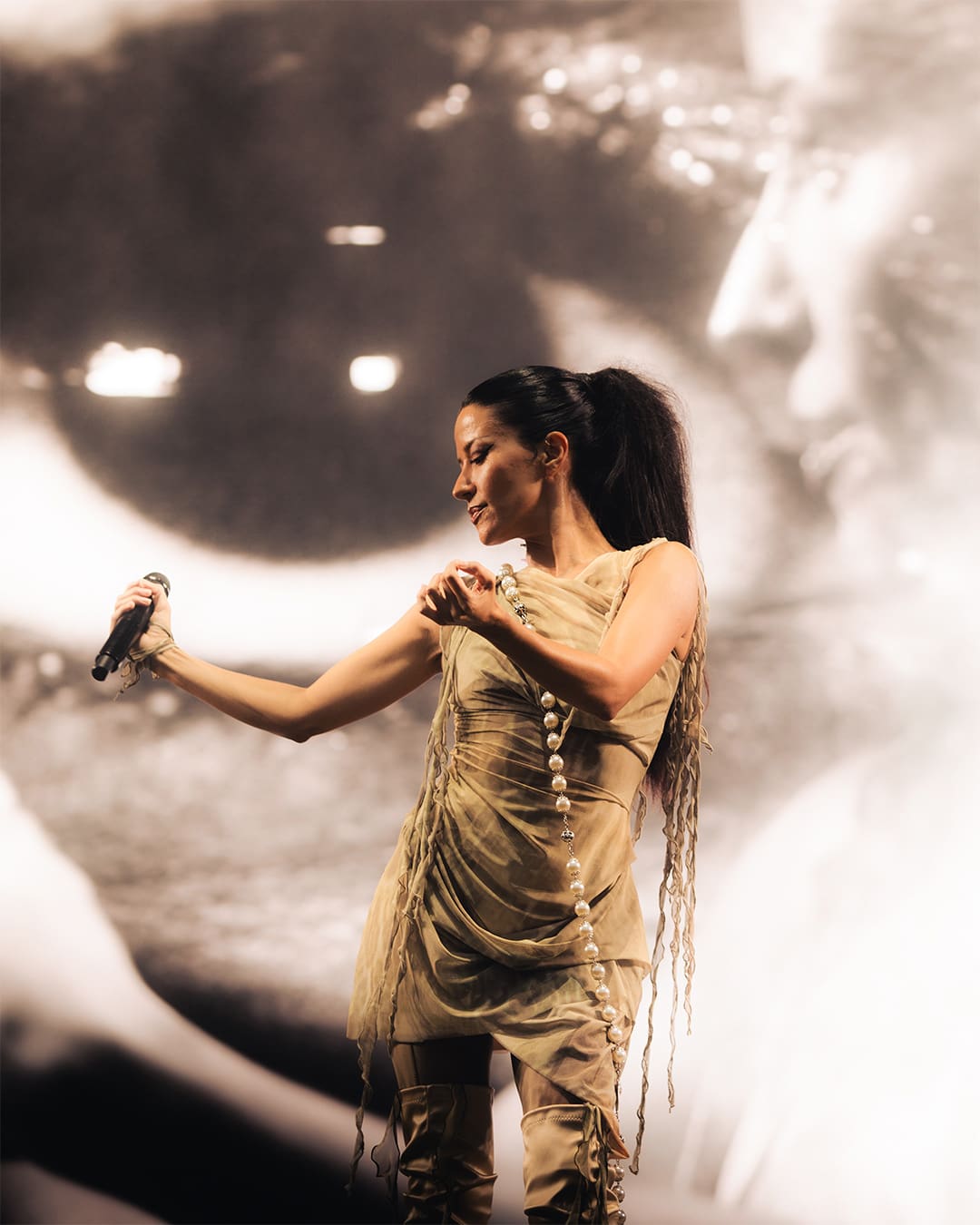
If there is one place you have not been to yet that you’d love to visit?
I would love to go to India and have some singing lessons. Their music is beautiful. There is a very beautiful sacred music festival that I would love to go to.
What tip would you give to someone visiting Lisbon?
Always ask people on the street for help. Portuguese people love connecting with others. If a visitor asks, “Where can I find this?”, people will, if they have time, walk you to that place. Locals know the best places to eat, too.
